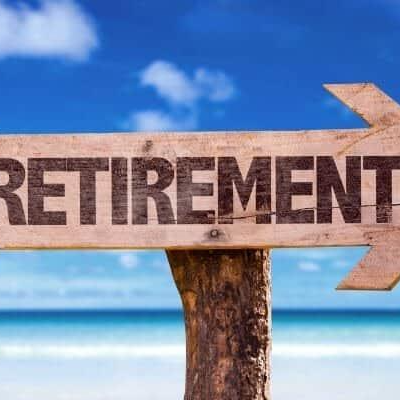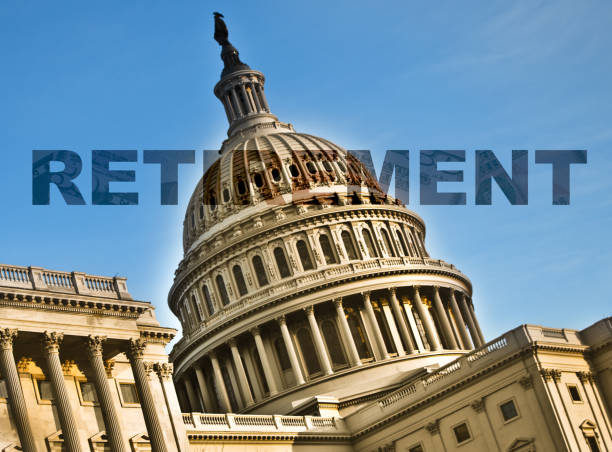Trump Regulation Reversal: ESG Funds Can Now Be Included in 401(k)s

After the Labor Department has revoked a Trump administration regulation — funds incorporating environmental, social, and governance equities can now be included in 401(k) retirement plans.
The agency approved a new rule allowing retirement plans to take into account climate change and other ESG considerations when selecting funds for the investment menu offered to plan participants.
The regulation will go into effect 60 days after being published in the Federal Register. Currently, plans may only include performance-related criteria.
Despite the rising popularity of ESG funds, investors have struggled to find such alternatives in their 401(k) plans. In 2020 Morningstar said that less than 5% of retirement plans include at least one sustainable fund. According to Labor Department officials, the Trump-era regulations had a “chilling effect,” preventing new ESG funds from being added.
“Today’s regulation clarifies that retirement plan fiduciaries can consider the potential financial benefits of investing in organizations committed to positive environmental, social, and governance actions as they assist plan participants in making the most of their retirement benefits,” said Labor Secretary Marty Walsh in a statement. “Removing the limits on plan fiduciaries imposed by the previous administration would benefit America’s employees and their families as they save for a comfortable retirement.”
In 2020, the Trump administration’s Labor Department released new regulations to limit ESG options in retirement plans. Those laws required plan fiduciaries to consider only investment performance-related variables when determining which investments would be accessible to plan participants.
After President Biden entered office, the Labor Department reviewed the Trump-era standards and announced that new regulations would be issued. The Labor Department, which oversees retirement plans, decided that the Trump-era guidelines needlessly limited plan fiduciaries’ ability to consider ESG concerns when selecting investments, even when doing so would benefit plan members financially.
The swaying regulatory pendulum illustrates a political tug-of-war over ESG investments and climate change efforts. Some conservative state legislators have lately attempted to limit ESG investments in their states. For example, Florida Gov. Ron DeSantis and the State Board of Administration passed legislation prohibiting the state from incorporating ESG issues in its investment management processes. The Florida Retirement System Trust Fund’s assets are invested and managed by the state board. Meanwhile, Texas has blacklisted several asset managers. Texas’ state comptroller has demanded that public retirement and education funds withdraw their assets in companies like BlackRock, which the state accuses of boycotting the fossil fuel sector.
Some opponents of ESG claim that funds that include environmental, social, and governance aspects underperform their counterparts. ESG proponents claim that climate change, for example, presents a significant long-term risk to many publicly traded companies and the environment.
ESG advocates applauded the Labor Department’s decision, hailing it as a victory for retirement investors.
According to the president of U.S. Impact Investing Alliance, Fran Seegull, considering the recent wave of poorly informed political attacks aimed at undermining the significance of ESG investment strategies, this regulation comes at a crucial moment. Also, it provides the much-needed clarity for investors and fiduciaries that ESG factors are, in fact, material. The DOL’s logical approach puts investment decisions in the hands of employees and financial experts rather than at the mercy of politically influenced groups.
In addition to other modifications, the new Labor Department regulation modifies a so-called tiebreaker test, which plan administrators use to pick between economically identical investment alternatives. The rule states that a plan fiduciary is not precluded from choosing an investment based on collateral advantages (benefits other than investment returns). Still, it upholds a long-standing concept that the fiduciary may not accept lower returns or higher risks to achieve collateral benefits.
Climate change and other environmental, social, and governance considerations can be helpful for plan investors as they decide on how to effectively develop and safeguard America’s employees’ retirement funds, said Lisa M. Gomez, Assistant Secretary for Employee Benefits Security.
Contact Information:
Email: [email protected]
Phone: 6232511574
Bio:
I grew up in Dubuque, Iowa, where I learned the concepts of hard work and the value of a dollar. I spent years in Boy Scouts and achieved the honor of Eagle Scout. I graduated from Iowa State University and moved to Chicago and spent a few years managing restaurants. I then started working in financial services and insurance helping families prepare for the high cost of college for their children. After spending years in the insurance industry, I moved to Arizona and started working with Federal Employees offing education and options on their benefits. I became a Financial Advisor / Fiduciary to further help people properly plan for the future. I enjoy cooking and traveling in my free time.
Disclosure:
Investment advisory services are offered through BWM Advisory, LLC (BWM). BWM is registered as an Investment Advisor located in Scottsdale, Arizona, and only conducts business in states where it is properly licensed, notice filed, or is excluded from notice filing requirements. BWM does not accept or take responsibility for acting on time-sensitive instructions sent by email or other electronic means. Content shared or published through this medium is only intended for an audience in the States the Advisor is licensed in. If you are not the intended recipient, you are hereby notified that any dissemination, distribution, or copy of this transmission is strictly prohibited. If you receive this communication in error, please immediately notify the sender. The information included should not be considered investment advice. There are risks involved with investing which may include market fluctuation and possible loss of principal value. Carefully consider the risks and possible consequences involved prior to making an investment decision.
Popular posts

CSRS Retirement Plans Are...
Key Takeaways CSRS remains...

TriCARE vs. FEHB: How...
Key Takeaways Military retirees...
Free Retirement Benefits Analysis
Federal Retirement benefits are complex. Not having all of the right answers can cost you thousands of dollars a year in lost retirement income. Don’t risk going it alone. Request your complimentary benefit analysis today. Get more from your benefits.
I want more



